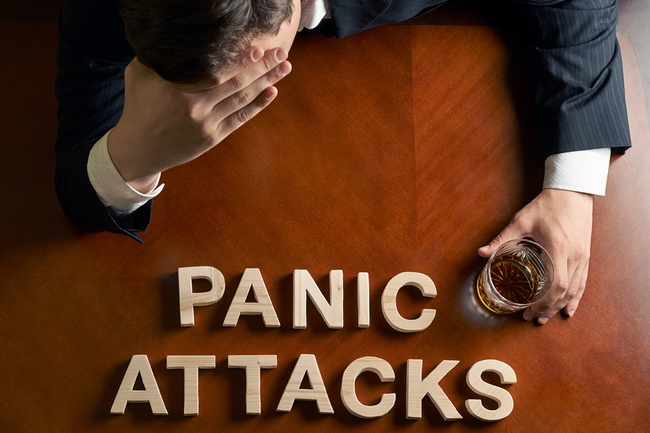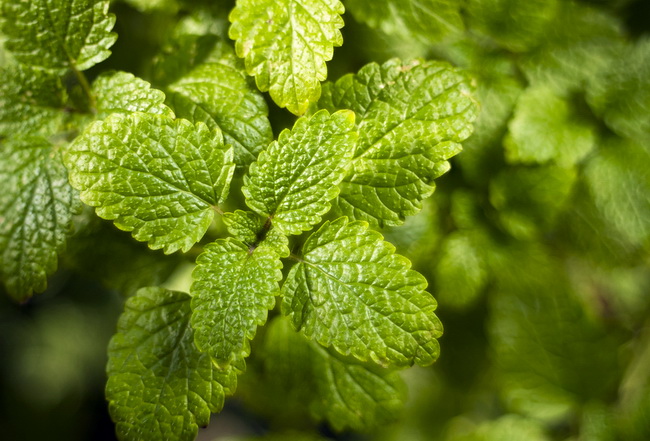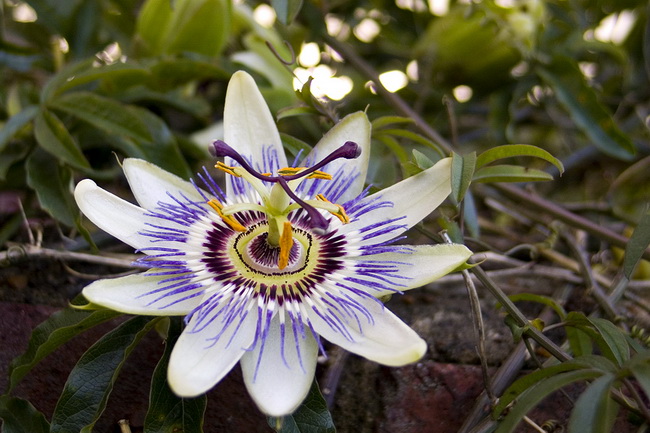- Make It Yourself Lavender Heart-Shaped Bath Bombs!
- 20 Things You Never Knew About “Down There”
- 12 Best Foods For Those Suffering From Arthritis Pain
- 12 Personal Hygiene Mistakes Almost Everyone Makes (Mom Never Told You About #4!)
- 15 Medicinal Plants And Herbs From The Cherokee People
- 12 Mind-Blowing Benefits Of Drinking Coconut Water During Pregnancy
- 12 Outstanding Winter Foods That Won’t Fatten You Up Like A Christmas Turkey
12 Creative Ways To Deal With Panic Attacks Without Medication

Photo credit: bigstock.com
If you or someone you love suffers from panic attacks, you know how devastating they can be. Some people describe a panic attack as having feelings of intense fear when no real threat exists.
Panic attacks can start without warning and last for hours; other times they only last a few minutes. When attacks happen over and over, they can cause you to start avoiding certain situations, people, or places where they tend to occur, even if there is no real connection between the panic attack and the location or person.
Besides feeling terrified, panic attacks can bring on real physical symptoms such as sweating, trembling, chest pain, shortness of breath or hyperventilation, nausea, numbness in the extremities, a rapid heartbeat, or even a choking or constricted feeling in the throat.
Many people describe panic attacks as feeling so much fear, combined with some of the symptoms above, that they believe they are having a heart attack, or they truly feel that they might die. Others say that they get a “dreamy” feeling about their panic attacks, as if they are not real or as if they were detached from the whole thing.
Although the exact cause of panic attacks is not fully understood, most scientists feel that there might be a genetic component that kicks in when extreme stress occurs. Additional factors that can increase your risk of developing panic attacks include experiencing a traumatic event, the death of a loved one, pregnancy, or a history of child abuse.
If you suffer from frequent panic attacks, it is important to see your doctor for proper diagnosis. Left untreated, panic attacks rarely get better; they only grow in frequency and intensity. This will take its toll on both your physical and mental health.
For mild or infrequent panic attacks, there are many simple techniques that can help you control them and help you feel better.
Keep reading for the top 12 ways that can help you deal with panic attacks.
Continue to Page 2

Photo credit: bigstock.com
1. Lemon Balm
Lemon balm (Melissa officinalis) comes to us from the Greek work for honey bees. This plant has been used since at least the Middle Ages to reduce feelings of stress and anxiety, as well as to help with sleep. In one study, subjects were given 600 mg of a lemon balm extract and scientists determined that they were more calm and alert than subjects who consumed a placebo. It’s important not to consume too much of this calming substance, as other studies have found that too much of a good thing, even something as mild as lemon balm, can actually leave some people feeling even more nervous. Take only as directed. Lemon balm is most often consumed as a tea, but it is also sold as a tincture and in supplement form.
2. Deep Breathing Techniques
Many people find that simple breathing techniques can stop a panic attack if you practice it at the first sign. Deep breathing allows more oxygen to enter the body, which has an overall calming effect on both mind and body. Practicing these techniques each day can even help prevent future panic attacks. To do this, simply breathe in deeply through your nose, and then breathe out slowly through your mouth. You might want to focus on a phrase like “I am calm” while you are breathing. Repeat for as long as necessary until you feel calm.
3. Hops
Yes, that same stuff that’s in beer can help calm you down. No, we don’t mean drink a six-pack each night; you want to get the natural tranquilizing benefits of natural hops (humulus lupulus). Hops contain a volatile oil that has powerful sedative compounds. You can find hops in tinctures, extracts, and in aromatherapy products. Hops are very, very bitter, so you don’t see them in tea form unless they’re combined with another product such as mint or lemon balm.
4. Chamomile
The Journal of Clinical Psychopharmacology published a study which found subjects who consumed chamomile reduced the symptoms of mild to moderate GAD (generalized anxiety disorder). Drink two cups of chamomile tea each day to encourage general relaxation and prevent future panic attacks. You can also take chamomile as a supplement, but speak with your doctor for the proper dosage for your condition.
Continue to Page 3

Photo credit: bigstock.com
5. Get Support
You should consider joining a support group that can help you talk about your experiences with people who understand what you are going through and how you feel. Don’t expect yourself to handle this alone. It is not a sign of weakness — everyone needs help now and then. Ask your doctor for a referral.
6. Valerian
This is another popular, calming herb for those who suffer from panic attacks. Valerian calms the nerves and encourages deep sleep. The National Phobics Society conducted a study finding that valerian was very effective in reducing the symptoms of panic attacks. Valerian is typically sold as a tea but you can also take a valerian supplement after speaking with your doctor about the proper dose for you.
SEE ALSO: Unbelievable Foods, Herbs, and Spices That Can Heal Cancer
7. Exercise Regularly
Exercise has a great many more benefits than simply improving the heart. Many studies have shown that regular exercise is a great treatment for panic attacks. Studies have shown that those who exercise experience fewer panic attacks than those who do not. Exercise reduces your stress hormones and increases the amount of hormones in the body that makes you feel good. Regular exercise will also help your body use up some of the energy that can be behind panic attacks.
8. Ginseng
Ginseng is a wonderful adaptogen, which can help the body to prepare for panic attacks. Those who consume ginseng are better able to deal with adverse condition and feelings because it helps reduce the intensity of the body’s response to stress. Drink one to three cups of ginseng tea each day to prevent panic attacks. There are numerous ginseng supplements, but speak with your doctor first about the proper dosage for you condition.
Continue to Page 4

Photo credit: bigstock.com
9. Passion Flower
Many herbalists recommend passion flower for the treatment of panic attacks. This flowering herb has flavonoids, such as benzoflavone and Chrysin, that can help increase the amount of GABA in the brain, which decreases anxiety and stress. Passion flower can be consumed as a tea or in a supplement form. You should consult a doctor or an herbalist while consuming this herb because excessive amounts can disrupt your sleep, mental, and motor functions.
10. Hot Baths
Taking hot baths or using hot tubs, Jacuzzis, or hydro-tubs can offer almost immediate relief from a panic attack. Hot water definitely has a relaxing effect on the body, helps to remove stress and tension, and encourages better sleep. Adding a few drops of lavender oil, rose oil, or chamomile can make an ordinary bath a super healing and positive experience.
11. Green Tea
Green tea is great for both mind and body. Green tea is loaded with healthy antioxidants, vitamins, minerals, and it has more than enough to go around for your mind and body. Don’t believe this can help? The American Journal of Clinical Nutrition published a study in 2009 finding that green tea drinkers had reduced stress levels, increased mental focus, and improved their overall mood. Drink two or three cups of green tea each day for best results.
12. Relaxation Techniques
Practicing relaxation techniques, such as mediation or yoga, can also help you deal with panic attacks more easily. These types of techniques elevate those “feel good” hormones in the body, such as serotonin. This helps to teach your body how to deal with stressful events and can even prevent future panic attacks. These relaxation techniques are super beneficial for your mind and your body. You need to learn to do these techniques correctly, so seek the help of a yoga expert and read a few books about proper mediation techniques.
Extra Tips:
- Eat a healthy diet that includes plenty of fresh, organic fruits and vegetables.
- Keep to a regular routine to ensure that you get your eight hours sleep each night
- Therapy might help you get through problem areas that trigger your panic attacks
- Reduce your intake of sugar, caffeine, and alcohol
- Be sure to take relaxation breaks out in nature
- Consider getting a rescue animal to care for and to keep you company. Pets are a terrific way to relax and get exercise
- Keep a journal to see if you can identify your triggers
- Consider taking a nutrition supplement that includes magnesium, B vitamins, and antioxidants.
References:

































